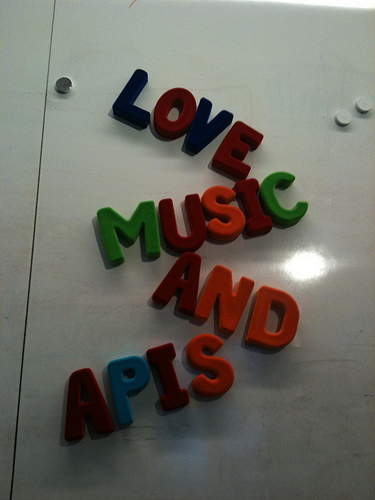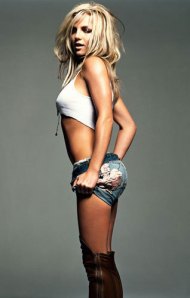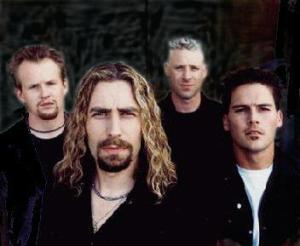Another crosspost, this one from Music Think Tank Open; it was written as a companion to the zed equals zee post, “Women in Music: the lost generation.”
As a fan, I’ve been excited for the rise of digital distribution and for the direct interaction of artists and listeners because it means I’m more likely to hear great music that I like. It means that I get to decide what I want to listen to, rather than having a slew of A&R folks and radio programmers make the decisions for me.
But lately, I’ve been thinking about how record labels are not only gatekeepers for the music itself, but also for the visual image of artists.
I get it. Artists are performers, and looks matter.
But it’s pretty clear when you look at Top 40 artists that the standards for successful female artists and successful male artists are not the same. Music industry executives are predominantly male, and their professional tastes are, frankly, boring. So female artists have to be conventionally attractive, but male artists can look like Nickelback—middling-attractive guys (whose videos are then stuffed full of women in bikinis).
Deviate from these norms, and you face opposition. Roadrunner tried to get Amanda Palmer to re-edit her “Leeds United” video; because it contained a shot of her exposed belly that didn’t conform to the taut, airbrushed Britney-Beyonce-Lady Gaga standards. (She and her fans rebelled, and ultimately won. If you haven’t seen the video, go watch it. Amanda Palmer is undeniably hot, whatever her former label thinks.)
How many awesome female artists are there that didn’t get signed or supported because they didn’t fit the narrow visual criteria of the guy on the other side of the desk? Janet Weiss, of Sleater-Kinney, talks about how photographers wanted the band to look playful and sweet, and to dress them up like they were dolls. She says, “We wanted to look like the Stones, to be cool, to be tough, to be heroes. Why don’t women get to be heroes?”
I want female artists to be heroes. Or anything else they want to be. And I’m delighted that it might finally happen.
This post is adapted from one at zed equals zee, a music, technology and culture blog. debcha is a music fan, academic, and geek (not necessarily in that order). She also writes the zed equals zee companion Tumblr, and you can follow her on Twitter.












